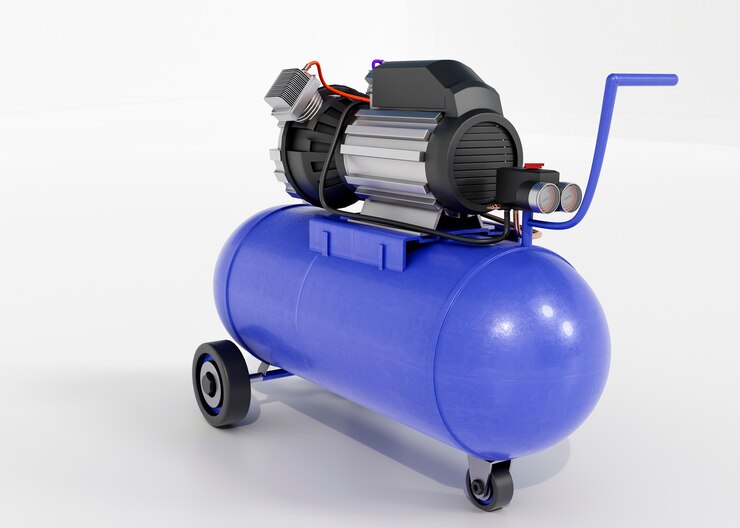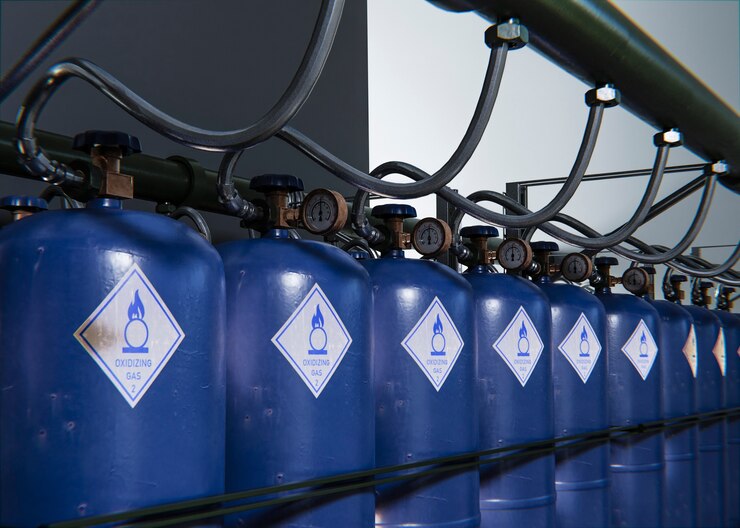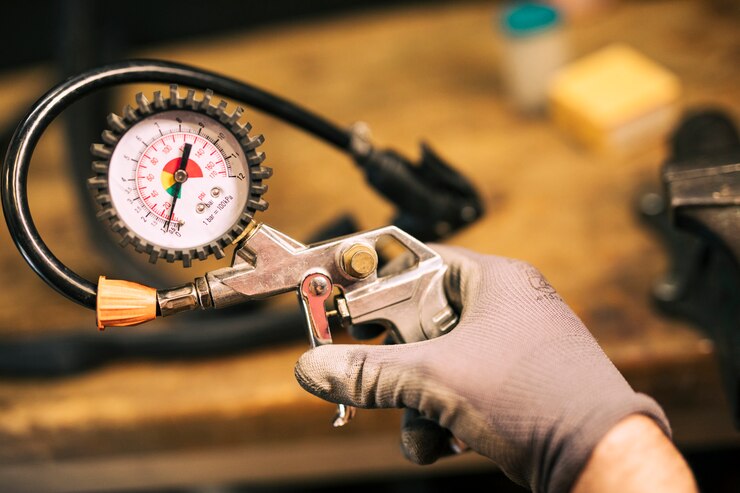Efficient LPG Unloading Compressor for Liquefied Gas Transfer by Corken
Learn about Corken’s efficient LPG unloading compressor for the transfer of liquefied gas in this animation. Perfect for industrial operations.

Introduction
In the realm of liquefied petroleum gas (LPG) handling and transfer, the role of compressors is paramount. One noteworthy player in this field is Corken, renowned for its efficient LPG unloading compressors. In this comprehensive guide, we’ll delve into the intricacies of Corken compressors, understanding their working principles, applications in LPG unloading, and the myriad benefits they bring to industrial and transport sectors.
Overview of Corken Compressors
Corken compressors represent a pinnacle in compression technology, designed to handle the unique challenges posed by LPG. These compressors boast a robust build and innovative engineering, making them indispensable for various applications. They are particularly recognized for their reliability and efficiency, ensuring a smooth transfer of liquefied gases.
Working Principle of Corken Compressors
Corken compressors operate on the fundamental principles of compression and reciprocation. The compressors utilize reciprocating action to draw in LPG, compress it, and then discharge it at a higher pressure. This mechanism ensures a consistent and reliable flow of liquefied gas, making Corken compressors an ideal choice for LPG unloading.
Applications of Corken Compressors in LPG Unloading
The versatility of Corken compressors extends to a wide array of applications in the LPG unloading process. From industrial settings to agricultural applications, these compressors play a pivotal role in ensuring efficient and safe transfer of liquefied gas.
Benefits of Using Corken Compressors
Corken compressors offer a plethora of advantages for industries involved in LPG unloading. One of the key benefits is their ability to achieve maximum compression efficiently. This not only enhances productivity but also reduces operational costs.
Maintenance Tips for Corken Compressors
To ensure optimal performance and longevity, proper maintenance of Corken compressors is crucial. Regular inspection, lubrication, and adherence to manufacturer guidelines are essential practices. These compressors are designed with durability in mind, and proper care significantly contributes to their longevity.
How Does an LPG Unloading Compressor Work?
The process of unloading LPG using a Corken compressor is a carefully orchestrated sequence. The compressor’s reciprocating action draws in the liquefied gas, compresses it, and then expels it at a higher pressure. This compressed gas is then directed to the storage or transport vessels, ensuring a safe and efficient unloading process.
Role of Reciprocating Action in LPG Unloading Compressors
Reciprocating action is a pivotal element in the operation of Corken compressors. This back-and-forth movement creates suction, drawing in the LPG. The subsequent compression of the gas is crucial for achieving the required pressure for unloading and subsequent applications.
Efficiency of LPG Unloading Compressors in Liquefied Gas Transfer
Efficiency is a hallmark of Corken compressors. Their ability to handle liquefied gases with precision and reliability ensures a smooth transfer process. This efficiency is especially crucial in applications where accurate pressure control is paramount.
Comparison of LPG Unloading Compressors with Other Gas Transfer Methods

When comparing LPG unloading compressors with alternative gas transfer methods, Corken compressors stand out for their precision, reliability, and versatility. They offer a superior solution, especially in scenarios where precise pressure control is essential.
Key Components of LPG Unloading Compressors
Understanding the key components of Corken compressors is vital for appreciating their functionality. These compressors typically consist of a compressor unit, motor, valves, and a control system. Each component plays a crucial role in ensuring seamless LPG unloading.
What Are the Key Features of Efficient LPG Unloading Compressors?
Efficient LPG compressors, such as those manufactured by Corken, exhibit key features that set them apart. These include high compression ratios, durable construction, and advanced control systems. These features collectively contribute to their effectiveness in liquefied gas transfer.
Vertical vs. Horizontal LPG Unloading Compressors
Corken offers both vertical and horizontal configurations for LPG unloading compressors. The choice between these configurations depends on the specific requirements of the application, space constraints, and operational preferences. Each configuration comes with its own set of advantages, and Corken provides customized solutions based on these factors.
Custom Engineered LPG Unloading Compressors
Corken recognizes the diverse needs of industries engaged in LPG unloading. To address this, they offer custom-engineered compressors tailored to specific requirements. This ensures that each compressor aligns seamlessly with the unique demands of the application, optimizing performance and efficiency.
Vapor Recovery in LPG Unloading Compressors
Efficient vapor recovery is a critical aspect of LPG unloading, and Corken compressors excel in this regard. The design of these compressors includes features that capture and recover vapor, minimizing emissions and enhancing overall environmental sustainability.
Oil-Free Operation in LPG Unloading Compressors
Many Corken compressors operate without the need for lubricating oil, making them suitable for applications where oil contamination is a concern. This oil-free operation not only ensures the purity of the transferred gas but also reduces maintenance requirements and associated costs.
Industrial and Transport Applications of LPG Unloading Compressors
The applications of Corken compressors extend beyond industrial settings to encompass the transport sector. These compressors play a crucial role in loading and unloading LPG from transport vessels, ensuring a safe and efficient transfer process.
Why Should Industries Consider Using Corken Compressors for LPG Unloading?
Several compelling reasons make Corken compressors the preferred choice for industries engaged in LPG unloading.
Efficiency and Maximum Compression in Corken Compressors
Corken compressors are engineered for efficiency, delivering maximum compression ratios to meet the demanding requirements of LPG unloading. This efficiency translates to increased productivity and reduced transfer times.
Reduced Maintenance and Operational Costs with Corken Compressors
The robust design and innovative engineering of Corken compressors contribute to reduced maintenance requirements. This, coupled with their efficient operation, translates to lower operational costs over the lifespan of the compressor.
Environmental Benefits of Using Corken Compressors in LPG Unloading
Corken compressors prioritize environmental sustainability through features like vapor recovery and oil-free operation. These attributes not only comply with environmental regulations but also contribute to the reduction of greenhouse gas emissions.
Reliability and Safety Features in Corken Compressors
Reliability is non-negotiable in LPG unloading, and Corken compressors are built to deliver just that. With built-in safety features and adherence to industry standards, these compressors ensure a secure and dependable LPG transfer process.
Adherence to Industry Standards and Regulations for LPG Handling
Corken places a premium on compliance with industry standards and regulations governing LPG handling. This commitment ensures that their compressors meet or exceed safety and performance benchmarks, instilling confidence in users.
Different Applications Where Corken Compressors Are Used for LPG Unloading
Corken compressors find applications in diverse sectors, catering to specific needs and requirements.
Industrial Applications of Corken Compressors for LPG Unloading
Industries engaged in the production, storage, and distribution of LPG benefit significantly from Corken compressors. These compressors facilitate efficient unloading, ensuring a steady supply for various industrial processes.
Agricultural Uses of Corken Compressors in LPG Unloading
Agriculture, particularly in the realm of crop drying and processing, relies on LPG. Corken compressors play a vital role in unloading LPG for these applications, contributing to the agricultural sector’s efficiency and productivity.
Transport and Storage Requirements for LPG Unloading with Corken Compressors
In the transport sector, Corken compressors are instrumental in loading and unloading LPG from tankers and storage vessels. Their compact design and portability make them ideal for use in various transport scenarios.
LPG Unloading in Specialized Settings Such as Tank Cars and Ammonia Handling
Corken compressors exhibit adaptability in specialized settings, such as unloading LPG from tank cars and handling other liquefied gases like ammonia. Their versatility makes them suitable for a wide range of applications, ensuring optimal performance across diverse scenarios.
Efficient LPG Unloading in Harsh Environments and Varying Pressure Conditions Using Corken Compressors
Corken compressors are designed to operate seamlessly in challenging environments and under varying pressure conditions. This adaptability makes them a reliable choice for industries facing diverse operating challenges, ensuring consistent performance regardless of external conditions.
Conclusion
In conclusion, Corken compressors stand as a testament to innovation and reliability in the realm of LPG unloading. Their efficient operation, customizability, and adherence to safety and environmental standards make them a preferred choice for industries seeking a robust solution for liquefied gas transfer. As technology continues to evolve, Corken remains at the forefront, providing cutting-edge compressors that redefine efficiency in the handling of LPG.



